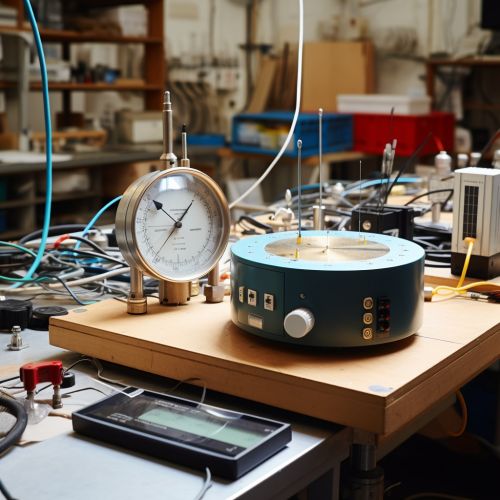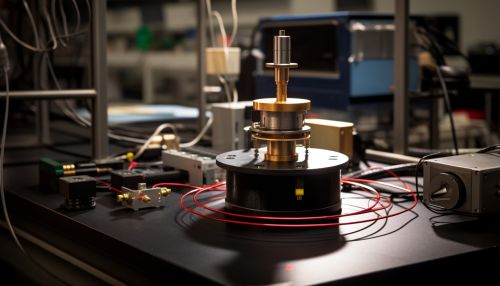Magnetometry
Introduction
Magnetometry is the scientific technique of measuring and understanding magnetic fields. It is a broad field that encompasses a variety of different methods and applications, from the study of geological structures to the detection of submarines. The discipline is crucial in a wide range of scientific and industrial applications, providing valuable data for geologists, archaeologists, physicists, and engineers alike.
History
The study of magnetism dates back to ancient times, with the discovery of naturally magnetized minerals known as lodestones. However, the scientific discipline of magnetometry did not truly begin until the 19th century, with the development of the first magnetometers. These early devices were rudimentary and lacked the precision of modern instruments, but they laid the groundwork for the field.
Principles of Magnetometry
Magnetometry is based on the fundamental principles of electromagnetism. According to Maxwell's Equations, a magnetic field is generated by moving electric charges. This means that any object that carries a current, whether it's a geological formation or a man-made object, will generate a magnetic field. By measuring this field, a magnetometer can provide information about the object that generated it.


Types of Magnetometers
There are several different types of magnetometers, each with their own strengths and weaknesses. These include the proton precession magnetometer, the optically pumped magnetometer, the SQUID magnetometer, and the Hall effect magnetometer. Each of these types of magnetometers operates on different principles and is suited to different applications.
Applications
Magnetometry has a wide range of applications in various fields. In geophysics, it is used to study the Earth's magnetic field and to detect anomalies in the Earth's crust. In archaeology, magnetometers can detect buried structures and artifacts. In physics, magnetometry is used to study magnetic materials and phenomena. In engineering, it is used in the design and testing of electronic devices.
Future Developments
The field of magnetometry is constantly evolving, with new techniques and applications being developed all the time. Future developments may include more sensitive magnetometers, new methods for interpreting magnetometer data, and new applications in fields such as medicine and environmental science.
